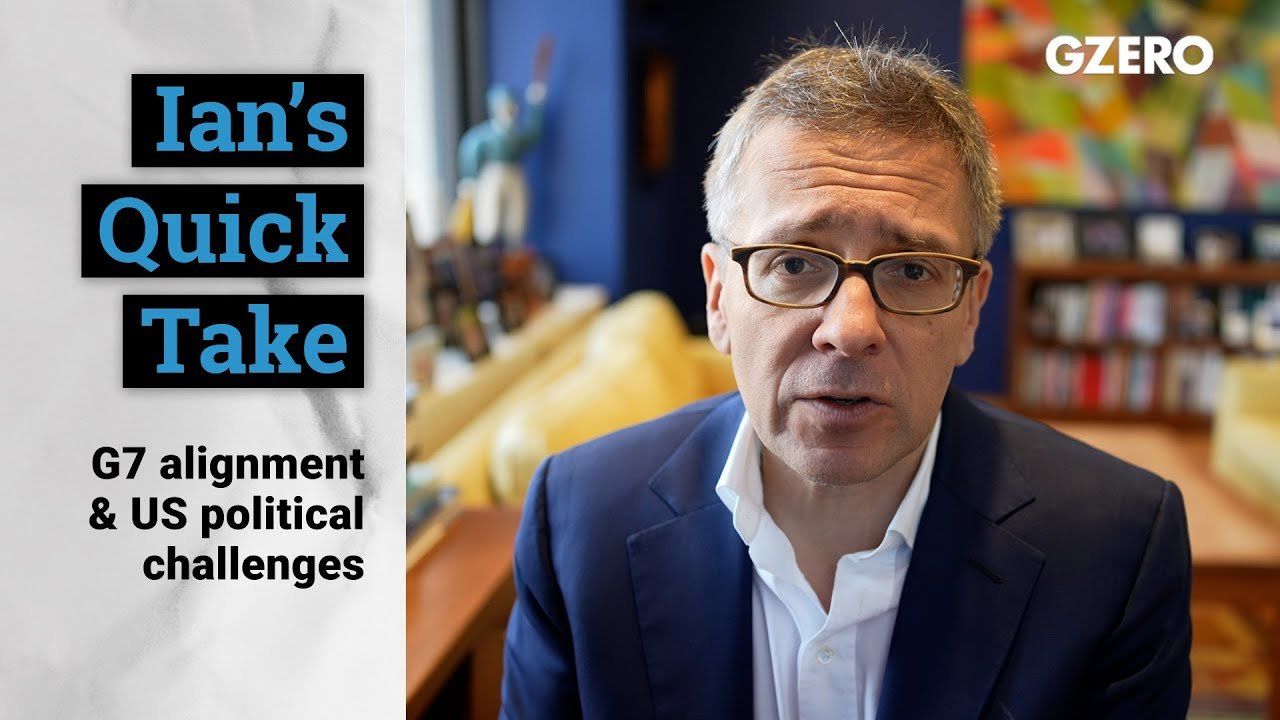
Ian Bremmer's Quick Take: Hi everybody. Ian Bremmer here and a happy Monday. Quick take to start off your week as President Biden is back in the United States after the G7 Summit in Hiroshima.
What do we think? How did it go? Well, I mean a couple of very different takes. First of all, the G7 is enormously aligned, most particularly on Russia. I have never seen this level of outpouring of support. Every individual member of the G7 engaged personally with Ukrainian President Zelensky, the level of international aid coordination, diplomatic engagement, military support across the board continues to be at exceptionally high levels, not what Putin would've expected, not what the G7 would've expected before the Russian invasion, and that certainly helps to put Zelensky in a stronger position to negotiate with the Russians after a counter offensive over the coming months.
Furthermore, on China, more coordination from the G7, the term of art is de-risking, and everyone is increasingly using that term concerns about Chinese economic coercion. Not that the Chinese are the only country in the world that engages in economic coercion. People have been on the other side of that from the United States, from other G7 economies. But when the G7 gets together and compares notes and sees how the Chinese are willing to use a dominant economic position to engage and lever political pressure on those countries, the G7 realizes they are much better off coordinating their policies than they are by themselves. And you are seeing that.
Now, most of that is the Europeans moving more closely to the United States in concerns about Chinese political security and economic practices. Some of it is the Americans talking less about decoupling and accepting a more proactive continuity of overall G7 China economic relations and interdependence that is important and necessary. But what's significant is that these relations are coordinated and the Chinese see that, and they see that they are not able to drive a bus through divisions between the United States and Canada on one side, Europeans on the other in how China is able to engage politically, and that does matter.
Having said all of that, that sounds like a great G7 for everyone concerned, but of course, a lot of these leaders are quite weak at home, quite unpopular at home, and the big problem is absolutely President Biden who had to cut short a dinner with the heads of state and then had to cancel a trip to Papua New Guinea, doesn't sound all that important, except all of the leaders of the Pacific Island states were coming to PNG in order to meet with Biden. These are countries where the Chinese are dominant economically and the Americans are trying to provide more security relations. Couldn't do that. Canceled on the BRICS summit too, visit to Australia, and to the Prime Minister in his hometown. Kind of embarrassing, at the last minute, he got a phone call, at least from Biden before the announcement. Papua New Guinea only got it afterwards. Well, they're
tiny place, but still doesn't look great.
And why is it happening? Dysfunction in the US political system and everyone gets that the debt limit needs to be resolved. Everyone gets that the Americans have to make good on paying off debts that they have already incurred, and yet Congress and the US president continue to be headlong moving towards crisis. Only 10 days left until June 1st in the so-called X date. According to Janet Yellen, Secretary of Treasury, that is when the debt comes due. And you don't have enough time at this point to get a deal that then can be voted through the House of Representatives without Republicans bolting from McCarthy and undermining his speakership.
So at this point, either there's going to be a short term extension or you're going to hit the X date. One of those two things I think is going to happen. In other words, there is going to be a much bigger crisis, at least sense of crisis before you can resolve this problem and that level of US political dysfunction on display in the G7, on display with the Chinese, on display most everywhere in the world, the biggest challenge to America's strength continues to be at home politically.
That's it for me. I'll talk to you all real soon.